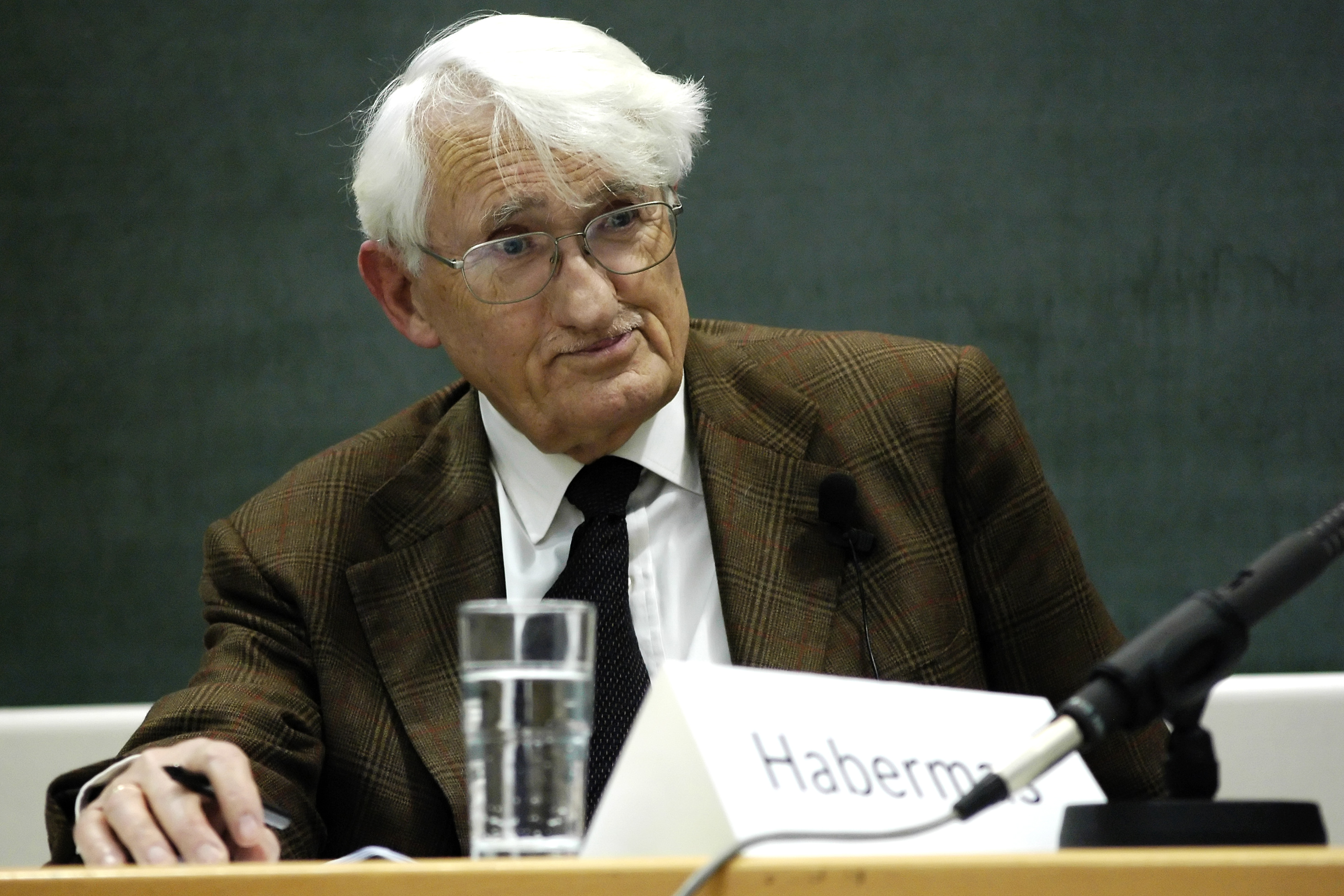da Fondamenti morali prepolitici dello stato liberale, 1967
Jürgen Habermas frasi celebri
citato in Patrizia de Mennato, La ricerca "partigiana" teoria di ricerca educativa, Libreria CUEM, Milano 1994
citato ne la Repubblica, 28 settembre 2007, p. 41
“Quando il peccato si è trasformato in colpa, qualcosa è andato perduto.”
Origine: Citato in Ulla Berkéwicz, Forse stiamo diventando pazzi, traduzione di Mara Cristina, Casagrande 2004. ISBN 8877133937
Origine: Citato in Habermas: "La Merkel in una notte si è giocata la reputazione della Germania costruita nel Dopoguerra" http://www.repubblica.it/economia/2015/07/16/news/habermas_la_merkel_in_una_notte_si_e_giocata_la_reputazione_della_germania_costruita_nel_dopoguerra_-119225926/?ref=HREA-1, Repubblica.it, 26 luglio 2015.
Jürgen Habermas: Frasi in inglese
Habermas (1979) cited in: Werner Ulrich (1983) Critical heuristics of social planning. p. 123
Origine: Knowledge and Human Interests, 1971, p. 310 as cited in: Dominick LaCapra (1983) Rethinking Intellectual History: Texts, Contexts, Language. p. 170
Habermas (2004) in: Giovanna Borradori (2004) Philosophy in a Time of Terror: : Dialogues with Jurgen Habermas and Jacques Derrida. p. 34
Habermas (2006) "Conversation about God and the World." Time of transitions. Cambridge: Polity Press, p. 150-151.
Origine: The Structural Transformation of the Public Sphere, 1963/1991, p. 222
Origine: The Structural Transformation of the Public Sphere, 1963/1991, p. 27
Habermas (2003) The Future of Human Nature. p. 10
Origine: Knowledge and Human Interests, 1971, p. 301
Origine: Knowledge and Human Interests, 1971, p. 266
Origine: The Structural Transformation of the Public Sphere, 1963/1991, p. 7 as cited in: Benedetto Fontana, Cary J. Nederman, Gary Remer (2004) Talking Democracy: Historical Perspectives on Rhetoric and Democracy. p. 222
Origine: On the Pragmatics of Communication, 1998, p. 23
Origine: The Structural Transformation of the Public Sphere, 1963/1991, p. 1 as cited in: Gandy, M (1997) "Ecology, modernity and the intellectual legacy of the Frankfurt School". In: Light, A and Smith, JM, (eds.) Space, Place and Environmental Ethics. p. 240
Habermas (1998) The Inclusion of the Other: Studies in Political Theory. Ciaran Cronin and Pablo De Greiff, eds. Cambridge, MA: The MIT Press.
Origine: The Structural Transformation of the Public Sphere, 1963/1991, p. 65
Origine: Moral Consciousness and Communicative Action (1983), p. 5
Origine: On the Pragmatics of Communication, 1998, p. 21
Habermas (1993) "Further reflections on the public sphere", in: Craig Calhoun Eds. Habermas and the Public Sphere. MIT Press. p. 441
Origine: Knowledge and Human Interests, 1971, p. 4
Origine: The Theory of Communicative Action, 1987, p. 308
Origine: Moral Consciousness and Communicative Action (1983), p. 26
Habermas (1972) "Sprachspiel, intention und Bedeutung. Zu Motiven bei Sellars und Wittgenstein". In R.W. Wiggerhaus (Ed.) Sprachanalyse and Soziologie. Frankfurt: Suhrkamp). p. 334
This is called the paradoxical achievement of intersubjectivity
Origine: The Structural Transformation of the Public Sphere, 1963/1991, p.xvii
Origine: On the Pragmatics of Communication, 1998, p. 22
Origine: Knowledge and Human Interests, 1971, p. 4
